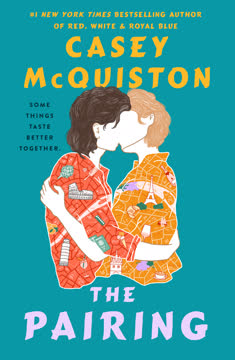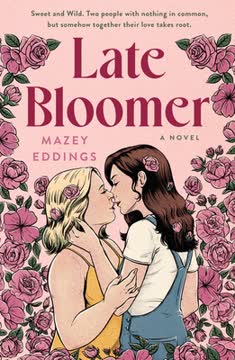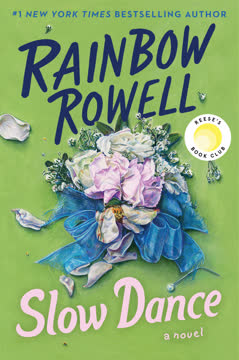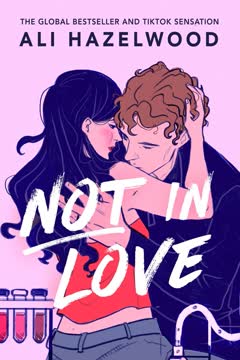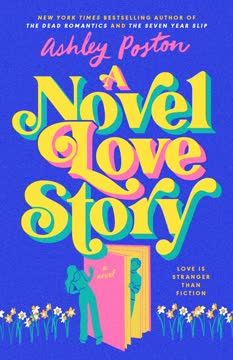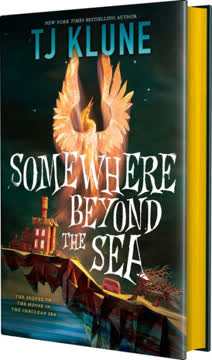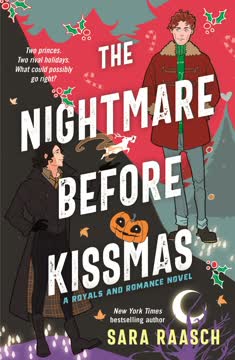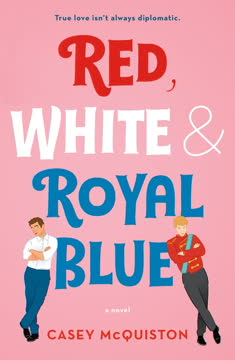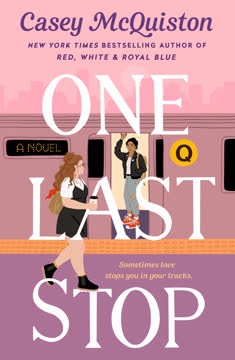Plot Summary
Reunion at Heathrow
Theo and Kit, once inseparable best friends and lovers, unexpectedly cross paths at London Heathrow, both en route to a long-planned European food and wine tour. Their reunion is awkward, charged with unresolved pain from a breakup that left both wounded and angry. The chance encounter forces them into close proximity, reigniting old feelings and setting the stage for a journey neither expected to take together. The emotional tension is palpable as they board the tour bus, each determined to prove they've moved on, but the past lingers in every glance and unspoken word. The story's emotional arc is set: can love survive distance, time, and heartbreak?
Accidental Tour Companions
Kit and Theo discover, to their mutual horror, that they've both used their nonrefundable tour vouchers for the same trip. Trapped on a three-week, multi-country culinary adventure, they must navigate shared spaces, meals, and memories. The group dynamic—strangers, couples, and new friends—highlights their isolation and the intimacy of their shared history. As they travel from London to Paris, the forced proximity cracks open old wounds, but also offers moments of humor and nostalgia. The journey becomes a crucible, testing whether they can coexist as friends or if the unresolved tension will combust.
Parisian Pastries and Pasts
In Paris, Kit's new life as a pastry chef collides with Theo's insecurities and sense of loss. Guided by a local chef, they taste the city's best pastries, but every flavor is tinged with bittersweet memories. Kit's effortless charm and connections in Paris highlight Theo's feelings of inadequacy and being left behind. The city of lights becomes a mirror for their relationship: beautiful, layered, and full of hidden pain. A gift of olive oil cake from Kit to Theo is misinterpreted, deepening misunderstandings. The city's romance is both a balm and a wound, as they struggle to redefine their connection.
Old Wounds, New Flavors
As the tour moves through Bordeaux and into Spain, Theo and Kit are forced to address the reasons for their breakup. A vineyard visit and a hands-on baking lesson become metaphors for their relationship: complex, requiring patience, and easily ruined by neglect. The truth emerges—miscommunications, pride, and fear led to their separation, not a lack of love. Both realize they've been carrying the pain of abandonment, each believing the other left first. The revelation is cathartic, but the scars remain. Their tentative truce is built on honesty, but trust is fragile.
The Pact: Friends with Benefits
Unable to ignore their chemistry, Kit and Theo strike a pact: a friendly competition to see who can hook up with the most locals in each city. The "body count" game is a distraction, a way to channel unresolved desire and avoid deeper conversations. Their rivalry is playful but edged with jealousy and longing. Each encounter with others is both a relief and a reminder of what they're missing in each other. The pact keeps them close, but also highlights the impossibility of being "just friends." The emotional stakes rise as the game blurs boundaries.
Rivalry and Resentment
The sex game intensifies, fueling both connection and resentment. Kit and Theo's attempts to outdo each other lead to moments of humor, jealousy, and vulnerability. Their friends and fellow travelers become unwitting spectators to their drama. The competition is a mask for their true feelings, but cracks appear as they witness each other's pain and growth. The rivalry becomes unsustainable, forcing them to confront what they really want: not victory, but each other. The emotional arc bends toward honesty, but fear of repeating old mistakes holds them back.
Saint-Jean-de-Luz: Temptations
In the idyllic Basque town of Saint-Jean-de-Luz, Kit and Theo are drawn into the lives of locals—chefs, fishmongers, and partygoers. The town's sensuality and warmth tempt them to let go, but also trigger old insecurities. Theo's flirtation with a local and Kit's connection with a pastry school friend highlight their differences and the ways they self-sabotage. A night on the beach, surrounded by new friends, brings both intimacy and distance. The possibility of happiness is real, but so is the fear of being hurt again.
Barcelona: Heat and Hunger
Barcelona's heat and decadence push Kit and Theo to their limits. A chocolate crawl and tapas tour become metaphors for their hunger—for food, for experience, for each other. The city's sensuality is overwhelming, and their attempts to find satisfaction with others only intensify their longing. A night spent in the same bed, bodies tangled but hearts guarded, brings their desires to the surface. Dreams, memories, and near-misses blur the line between friendship and love. The city's chaos mirrors their internal turmoil, as they edge closer to a breaking point.
Florence: Art and Awakening
In Florence, surrounded by Renaissance masterpieces, Kit and Theo experience moments of clarity and awakening. The city's beauty and history inspire them to reflect on their own growth and the possibility of change. A visit to the Uffizi and a walk through the Boboli Gardens become catalysts for vulnerability and honesty. They begin to see each other—and themselves—with new eyes, recognizing the ways they've changed and the potential for a different future. The art of the city becomes a metaphor for their relationship: enduring, evolving, and capable of being remade.
Tuscany: Breaking and Mending
In the rolling hills of Tuscany, Kit and Theo's progress is threatened by old patterns. A missed bus, a heated argument, and confessions of failure bring their insecurities to the surface. Theo's fear of being a "fuckup" and Kit's guilt over past mistakes collide, nearly derailing their fragile peace. But in the quiet of a country villa, they find space to be honest, to comfort each other, and to admit their fears. The chapter is a turning point: forgiveness is possible, but only if they can accept themselves and each other as imperfect.
Rome: Reckonings and Realizations
Rome's grandeur and history force Kit and Theo to confront the reality of their relationship. Amid ancient ruins and bustling streets, they revisit the fight that ended them, finally understanding the pain and pride that kept them apart. The city's layers—old and new, sacred and profane—mirror their own complexity. A Vespa ride, a shared meal, and a night spent together bring moments of joy and clarity. They realize that love is not about erasing the past, but about choosing each other in the present, with all their scars and hopes.
Naples: Letting Go, Letting In
In Naples, surrounded by food, family, and the chaos of life, Kit and Theo learn to let go of the narratives that have defined them. A dinner with their tour guide's family, a failed attempt at a threesome, and a series of honest conversations with friends and each other help them see that happiness is not about winning or being right. They begin to imagine a future that is not dictated by fear or pride, but by choice and vulnerability. The city's warmth and messiness become a model for the kind of love they want to build.
Palermo: The Grape and the Grain
In Sicily, Kit and Theo reach the end of their tour and the edge of their old lives. The city's markets, churches, and beaches are a feast for the senses, but also a crucible for decision. They confront their ambitions, fears, and the reality of living on different continents. Letters are written, bottles are shared, and the possibility of a future together is both terrifying and exhilarating. The final days are bittersweet, filled with longing and the knowledge that something must change if they are to have more than memories.
The Last Day: Choices
On the last day, Kit and Theo must choose: return to their separate lives, or risk everything for a chance at happiness together. Letters are read, flights are booked, and hearts are laid bare. The fear of repeating old mistakes is real, but so is the hope that they have grown enough to try again. The story's emotional climax is a race against time, as both realize that love is not about certainty, but about choosing each other, again and again, despite the risks.
Letters, Airports, and Answers
In a final, cinematic rush, Kit and Theo both make desperate dashes to the airport, determined not to let fear or pride keep them apart. A letter, a return address, and a last-minute reunion in Paris bring the story full circle. The emotional payoff is hard-won: forgiveness, vulnerability, and the promise of a new beginning. The past is not erased, but transformed into the foundation for a future built on honesty, trust, and mutual support. The lovers are finally, truly reunited.
Field Day: A New Beginning
In the epilogue, Kit and Theo have created a new life in Saint-Jean-de-Luz, opening a bakery-bar called Field Day. Surrounded by friends, family, and the flavors of their journey, they have found peace—not in perfection, but in the daily choice to love and grow together. The story ends with a proposal, a celebration, and the knowledge that the most important journeys are the ones we take with the people who know us best. The emotional arc is complete: love, once lost, is found again, richer and more resilient than before.
Characters
Theo Flowerday
Theo is the eldest child of a famous Hollywood family, but has always felt like the odd one out—queer, nonbinary, and more at home behind a bar or in a kitchen than in the spotlight. Their relationship with Kit is the axis of their emotional world: best friends, first loves, and the source of both their greatest joy and deepest pain. Theo is fiercely independent, terrified of being a "fuckup," and prone to self-sabotage. Their journey is one of learning to trust themselves, to accept love without fear, and to believe they are worthy of happiness. Over the course of the story, Theo grows from a person defined by insecurity and pride into someone capable of vulnerability, forgiveness, and commitment.
Kit Fairfield
Kit is a French-American pastry chef, raised between cultures and languages, with a deep love for beauty, food, and the people he cares for. His relationship with Theo is both his greatest comfort and his greatest regret; he has never stopped loving them, even after their painful breakup. Kit is gentle, thoughtful, and sometimes too eager to fix others' problems, which led to the controlling mistake that ended their relationship. His journey is about learning to let go of control, to trust in mutual choice, and to accept that love is not about saving someone, but about growing together. Kit's arc is one of healing, self-acceptance, and the courage to risk his heart again.
Sloane Flowerday
Sloane is Theo's younger sister, a successful actress who is both a confidante and a source of pressure. She loves Theo fiercely, but is frustrated by their refusal to accept help or use their family's resources. Sloane's role is to challenge Theo's pride, offer tough love, and ultimately support their journey toward self-acceptance. Her presence is a reminder of both the privileges and burdens of family, and her unwavering loyalty is a touchstone for Theo's growth.
Maxine
Maxine is Kit's best friend in Paris, a pastry chef with a dry sense of humor and a keen eye for bullshit. She is the voice of reason, pushing Kit to be honest with himself and to take risks for love. Maxine's own history of loss and resilience makes her both empathetic and unsentimental. She serves as a mirror for Kit, showing him the value of friendship, honesty, and the importance of not settling for less than he deserves.
Fabrizio
Fabrizio is the tour guide whose warmth, humor, and zest for life set the tone for the journey. He is a catalyst for connection, encouraging guests to embrace pleasure, take risks, and savor every moment. Fabrizio's own love story—with his wife Valentina—serves as a model for Kit and Theo: love is not about perfection, but about choosing each other, again and again, with open hearts and open hands.
Paloma
Paloma is a fishmonger in Saint-Jean-de-Luz who befriends both Kit and Theo, offering them a glimpse of a different kind of life—rooted, communal, and full of possibility. She is a symbol of the new beginnings that are possible when we let go of old stories and open ourselves to change. Paloma's practical wisdom and kindness help both protagonists imagine a future beyond their fears.
The Calums
The two Calums—Australian travelers, one a wildlife biologist, the other a doctor—provide humor, camaraderie, and a subplot about the messiness of friendship, rivalry, and unspoken feelings. Their evolving relationship, from banter to unexpected intimacy, parallels Kit and Theo's journey, highlighting the importance of honesty, forgiveness, and the courage to risk vulnerability.
Dakota and Montana
Dakota and Montana are young, social-media-savvy travelers who orbit the main group, offering both comic relief and moments of surprising insight. Their openness, curiosity, and willingness to embrace pleasure serve as a foil to Kit and Theo's guardedness. They are reminders that life is meant to be lived fully, and that happiness often comes from saying yes to the unexpected.
Orla
Orla is the Irish bus driver who shepherds the group across Europe. Her dry humor, practical advice, and unflappable presence provide stability amid the chaos. Orla's own love story—with her wife in Derry—serves as a quiet counterpoint to the main romance, showing that love can be both ordinary and extraordinary.
Sloane's and Kit's Families
The families of both protagonists are ever-present, shaping their fears, ambitions, and sense of self. Kit's late mother and distant father, Theo's famous parents and supportive sisters—all are sources of both comfort and pressure. Their influence is felt in every decision, every moment of doubt, and every step toward independence.
Plot Devices
Forced Proximity and Second Chance
The narrative is built on the classic romance device of forced proximity: Kit and Theo, once lovers, are thrown together on a nonrefundable European tour. This structure forces them to confront unresolved feelings, misunderstandings, and the pain of their breakup. The "second chance" trope is given depth by the complexity of their history and the authenticity of their wounds.
The Sex Competition
The "body count" game—competing to hook up with the most locals—serves as both comic relief and a plot engine. It allows Kit and Theo to explore their sexuality, test boundaries, and avoid deeper conversations. The competition is a mask for vulnerability, but also a catalyst for honesty, as jealousy and longing force them to confront what they really want.
Food and Travel as Metaphor
Each city, meal, and flavor is a metaphor for the characters' growth, desires, and fears. The sensory richness of the food and settings is not just backdrop, but integral to the story's emotional arc. The act of tasting, cooking, and sharing food becomes a way to process pain, express love, and imagine new possibilities.
Letters and Missed Connections
The original breakup is rooted in a series of missed messages, misunderstandings, and prideful silences. Letters—written, unsent, or finally read—become symbols of both regret and hope. The final act's airport dash and letter reveal are classic romance devices, but are given new life by the authenticity of the characters' growth.
Dual Perspectives and Narrative Structure
The story is told in alternating perspectives, allowing readers to inhabit both Kit's and Theo's inner worlds. This structure reveals the ways they misunderstand each other, the depth of their longing, and the parallel journeys they undertake. The narrative is both linear and recursive, with past and present intertwining, mirroring the process of healing and reconciliation.
Symbolism of Place and Profession
Kit's work as a pastry chef and Theo's as a sommelier/bar owner are not just jobs, but extensions of their personalities and desires. The cities they visit—Paris, Florence, Barcelona, Palermo—are chosen for their symbolic resonance: places of art, food, history, and transformation. The final setting, Saint-Jean-de-Luz, represents peace, possibility, and the blending of old and new.
Analysis
Casey McQuiston's The Pairing is a lush, emotionally intelligent exploration of love, loss, and the courage to begin again. At its heart, the novel is about the messy, nonlinear process of healing: how two people, broken by pride and misunderstanding, can find their way back to each other not by erasing the past, but by embracing it. The book's structure—a food and wine tour across Europe—serves as both a literal and metaphorical journey, with each city, meal, and encounter offering new flavors, lessons, and opportunities for growth. The sex competition is both a comic device and a mask for vulnerability, ultimately revealing that true intimacy requires honesty, not games. The alternating perspectives allow for deep psychological insight, showing how love can be both a source of pain and the engine of transformation. The novel's modern sensibility—queer, sex-positive, and unafraid of complexity—makes it both a celebration of pleasure and a meditation on the risks of loving bravely. Ultimately, The Pairing argues that happiness is not about perfection or certainty, but about choosing each other, again and again, with open hands and open hearts. The final message is clear: the most important journeys are not the ones we plan, but the ones we take with the people who know us best, flaws and all.
Last updated:
Review Summary
The Pairing received mixed reviews, with some readers praising its queer representation, humor, and steamy scenes, while others found it repetitive and lacking depth. Critics enjoyed the European food and wine tour setting but felt the characters were underdeveloped. Some appreciated the exploration of gender identity and second-chance romance, while others found the plot thin and the protagonists unlikable. Overall, opinions varied widely, with some hailing it as McQuiston's best work and others considering it their weakest.
Similar Books
Download PDF
Download EPUB
.epub digital book format is ideal for reading ebooks on phones, tablets, and e-readers.
